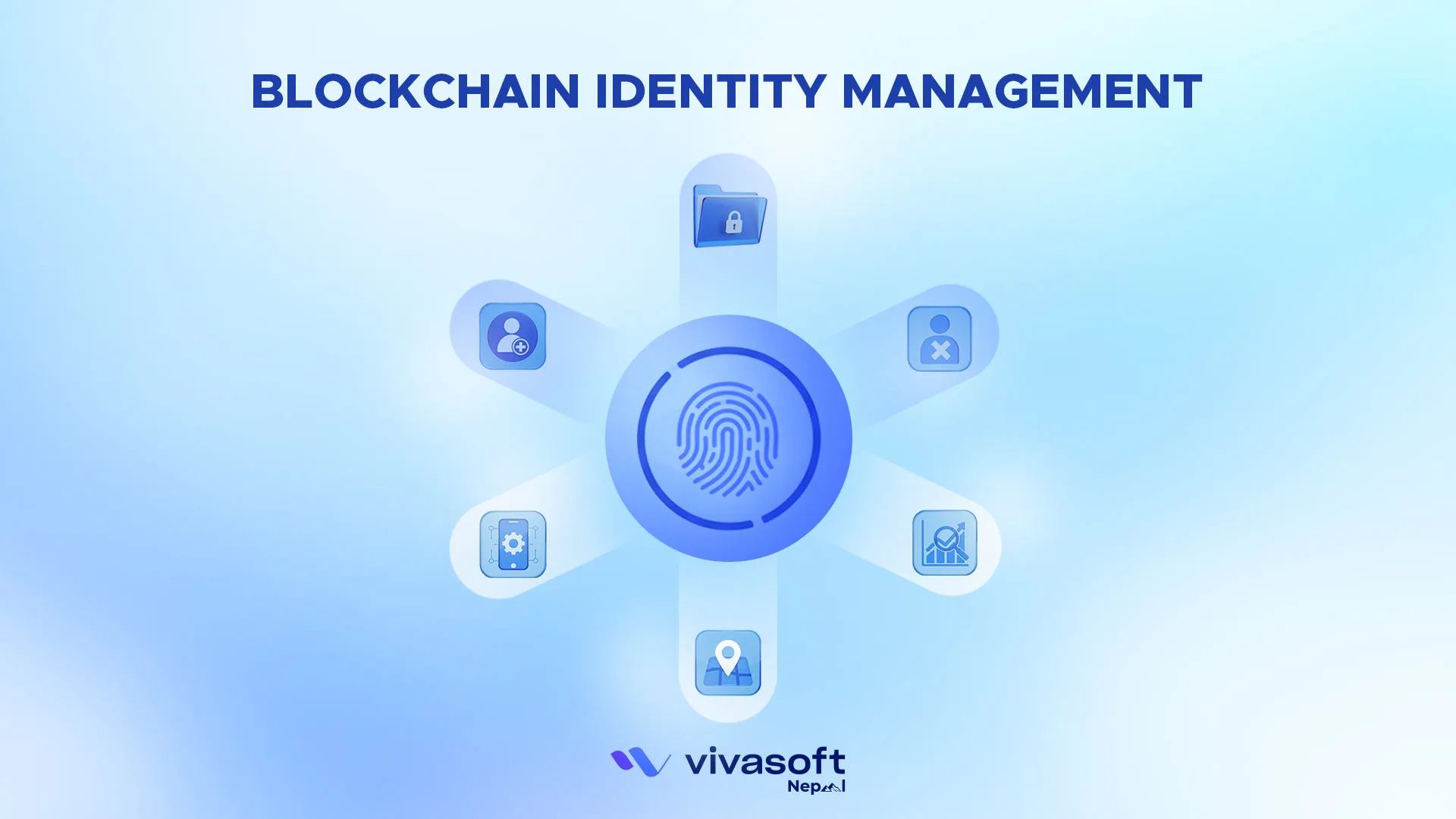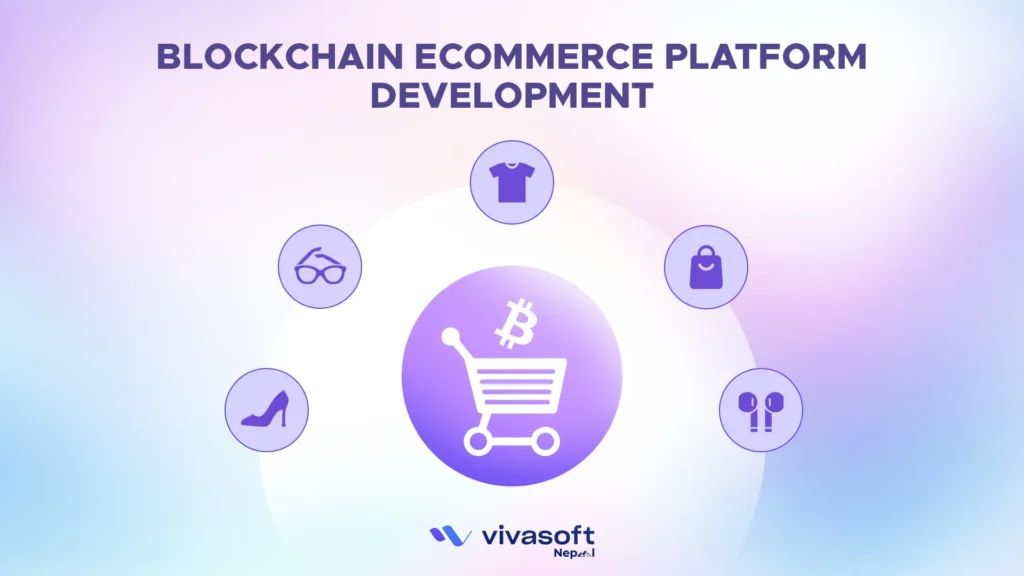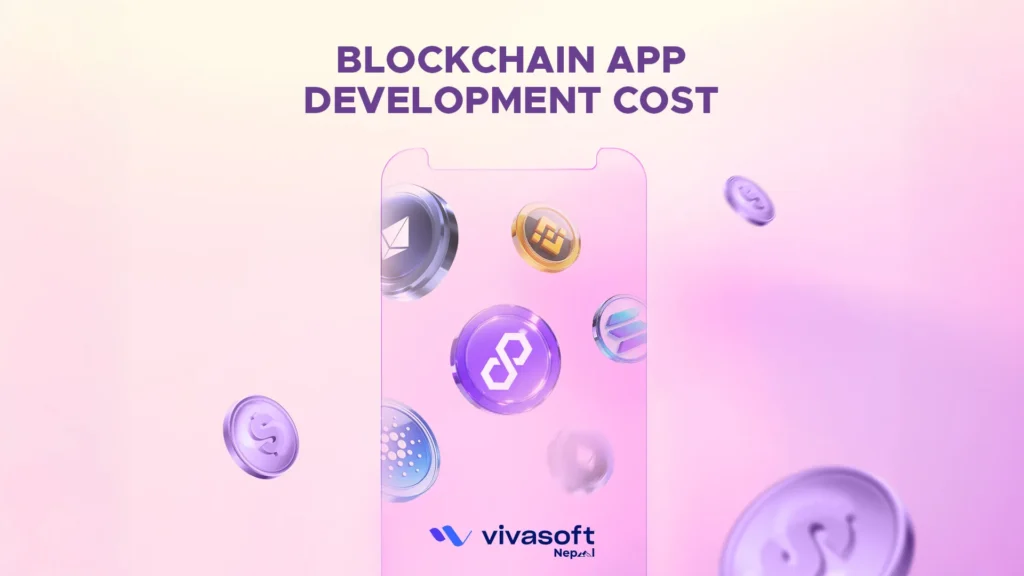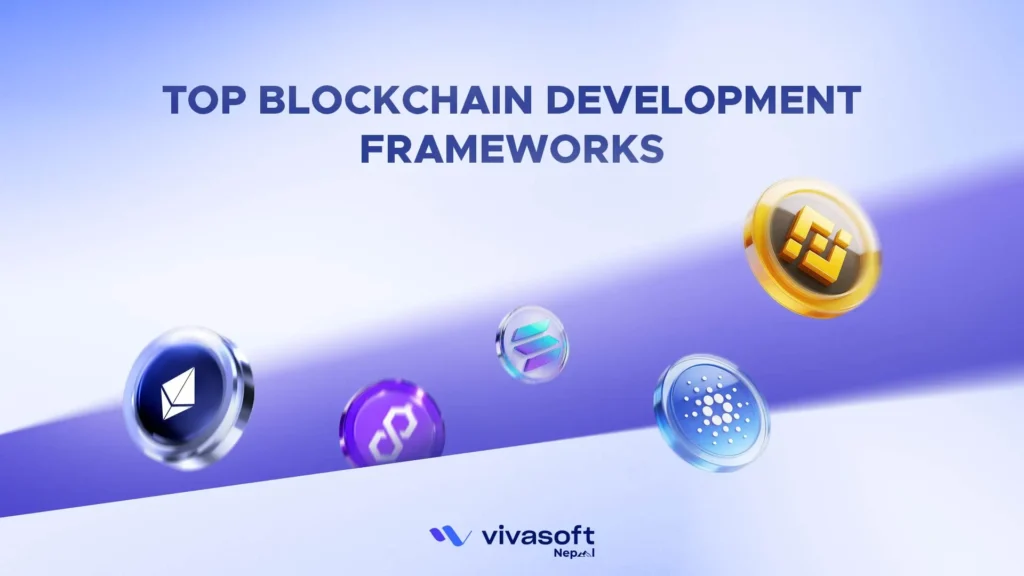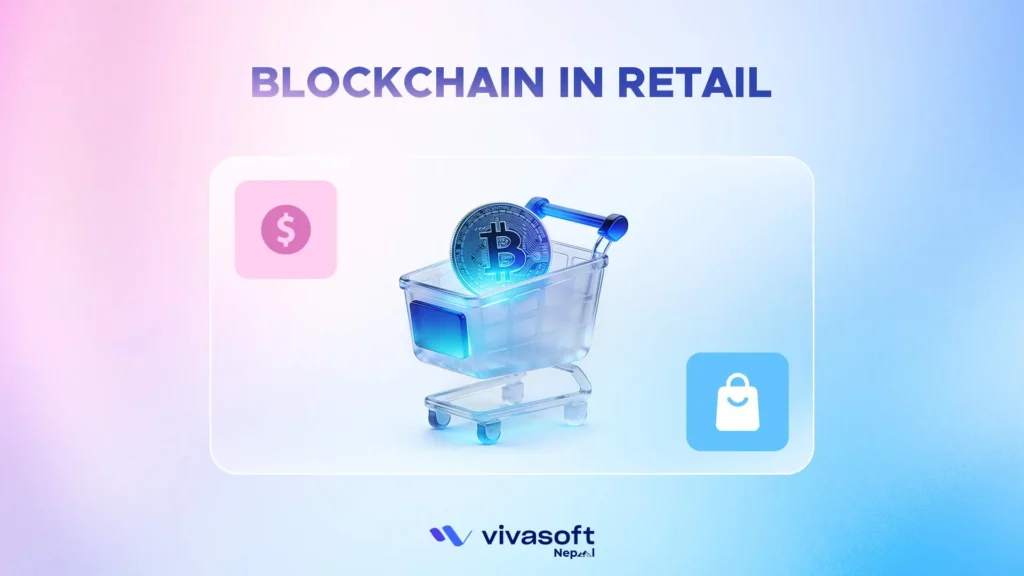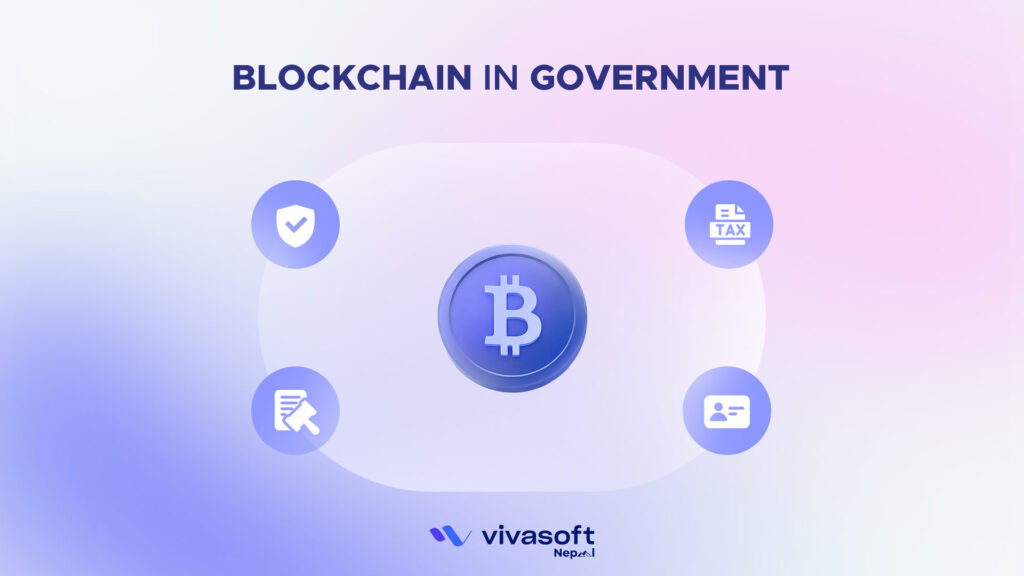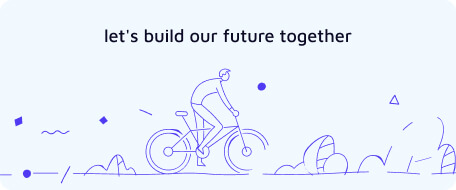Every time you sign up for a new app, verify your identity online or share personal details with a platform, your data travels through multiple systems and that’s where the problem begins. Our digital world runs on identity verification but the way we manage and secure identities hasn’t kept up with the pace of digital transformation.
That’s where blockchain identity management enters. It’s a revolutionary approach that’s changing how we store, verify and protect digital identities.With increasing cases of data breaches, identity theft and privacy concerns, blockchain offers a secure, transparent and decentralized solution. It gives users ownership of their data while allowing organizations to verify identities quickly and safely without depending on centralized databases that are prone to attacks.
In today’s digital era, where trust and privacy are more valuable than ever, blockchain-based identity systems are gaining serious attention and for good reason.
What is Blockchain Identity Management?
Blockchain identity management is a system that uses blockchain technology to create, store and verify digital identities in a decentralized and more secure way. In traditional systems, your data is stored in centralized servers, think of Facebook, Google or a bank.
These institutions control your identity information and can share or lose it if their systems are compromised. But with blockchain, there’s no central authority. Instead, your identity information is stored on a distributed ledger which is secured by cryptography. Only you can access or share it and you decide when and with whom.
For example, instead of submitting your passport copy every time you open a bank account, you can have a verified digital ID on the blockchain. The bank simply checks your blockchain credentials without storing your personal data, saving time, reducing risk and improving trust.
What Are the Problems with Current Digital Identity Management Systems?
Today’s digital identity systems are kind of all over the place, they’re fragmented, expensive and risky. Here are some of the main problems blockchain tries to fix:
- Data Breach Risks: Centralized databases are a prime target for hackers. One successful attack and millions of users’ personal information can get exposed.
- Poor Account Management: People often have tons of passwords and accounts to manage which usually leads to weak security and password reuse.
- Costly KYC/AML Processes: Businesses spend crazy amounts verifying customer identities with Know Your Customer (KYC) and Anti-Money Laundering (AML) checks. Blockchain can make these processes much faster and cheaper.
- Identity Theft: If your info is sitting in a central system, it’s pretty easy for cybercriminals to steal and misuse it.
- No Data Control: Users have little to no control over how their personal data is stored, shared or even used for profit.
- Lack of Official ID: Millions of people around the world still don’t have proper identification, which makes it super hard to access basic services.
How Blockchain Enhances Identity Verification?
Blockchain solves many problems of traditional identity management. First, it provides a decentralized structure which means your identity is stored across multiple nodes instead of a single server. This prevents single points of failure and drastically reduces hacking risks.
Second, blockchain allows secure and verifiable sharing of identity data. With the help of DIDs and VCs, users can prove specific details of their identity without sharing unnecessary personal information. For organizations, blockchain makes life a lot easier.
Verifications happen faster, KYC costs drop, and the chances of fraud are much lower. For users, it’s a win too, onboarding is quicker, full control over personal information and their identity is much better protected from theft or misuse.
What Are the Roles of Decentralized Identifiers and Verifiable Credentials In Blockchain Identity Management?
Two key components of blockchain identity management are Decentralized Identifiers (DIDs) and Verifiable Credentials (VCs). Together, they enable secure, privacy-focused identity verification.
Decentralized Identifiers (DIDs)
DIDs are unique digital IDs stored on blockchain and fully controlled by the user. Unlike traditional IDs, they are user-controlled and independent of any central authority. DIDs allow users to manage multiple identities on multiple services without the loss of privacy.
Each DID is linked to a cryptographic key which lets you prove your identity or sign transactions safely without sharing personal information. This makes DIDs the foundation of self-sovereign identity (SSI) which gives full control over your own digital presence.
Verifiable Credentials (VCs)
VCs are digital certificates demonstrating certain facts about who you are like age, qualification or employment. They could be provided by reputable organizations and verified on the blockchain without exposing any unnecessary personal information. For example, a university could issue a VC confirming that you’ve earned a degree.
When an employer needs to check it, they can verify it directly on the blockchain, no waiting for paperwork, no endless phone calls and no risk of fake documents. This mechanism guarantees trust, efficiency and privacy. You provide just what is necessary and your personal information remains under your control.
What Are the Benefits of Blockchain Identity Solutions?
Blockchain identity solutions come with plenty of advantages not just for businesses, but for users too.
Benefits for Users:
- Consent-Based Data Sharing: Users get to actually decide who can see their personal information. It’s all about control. You can share what you want, when you want.
- Secure & Decentralized ID: Instead of having your data sitting on one company’s server (which can get hacked), it’s stored safely on the blockchain. That means way less risk of leaks or misuse.
- Full Data Ownership: You’re the one in charge of your information. You choose what to share, who gets to see it and for how long.
- Universal Accessibility: Whether you’re logging in from another country or signing up for a new service, your identity can be verified instantly, no need to repeat those same KYC checks again and again.
- Faster Verification Processes: Everything happens almost instantly. No waiting days for approval or manual reviews the system just verifies it right away.
- Improved User Experience: It just makes things a lot easier for users. Less hassle, fewer forms and a much better experience when accessing services online.
Benefits for Organizations:
- Data Security: It really helps keep sensitive information safe and lowers the risk of data breaches or fraud happening. Businesses don’t have to worry as much about their data getting into the wrong hands.
- Faster Verification & Authentication Processes: Since most of the checks are automated now, there’s way less paperwork and waiting around. Everything just moves faster and feels a lot smoother overall.
- Significantly Lower Costs: It helps cut down a lot of those extra costs that come with KYC, AML and all those compliance things. Basically, less manual work means more savings.
- Prevent Identity Fraud: With stronger authentication in place, it’s super hard for anyone to pretend to be someone else. That alone adds a ton of trust to the whole system.
- Automated Data Visibility: The right people can easily get the data they need, without putting anyone’s privacy at risk. It’s convenient but still keeps everything secure.
- Facilitates Legal Data Compliance: Following data laws like GDPR doesn’t feel like such a headache anymore. Blockchain helps keep everything transparent and easy to trace if needed.
What Are the Use Cases for Identity on Blockchain?
Blockchain identity management isn’t limited to tech or financial institutions; it’s starting to change how all sorts of industries handle personal and digital identity. Let’s look at some of the use cases:
Self-Sovereign Identity
Self-sovereign identity (SSI) gives you complete control over your personal data. Instead of having your information scattered across multiple platforms or stored by third parties. SSI allows you to keep it securely in one digital wallet.
Whenever you need to prove your identity for example, logging in to a service or validating your credentials, you only share what is necessary. This way, your personal information remains personal while you enjoy convenience, security and real control on your digital identity.
Smart Contracts
Smart contracts are digital agreements on the blockchain that run by themselves. Your identity can be automatically checked before completing the transaction. For example, if you’re renting a car or buying a digital item, the smart contract can quickly check your credentials like your age or whether you actually own the item.
This helps cut down on fraud and builds trust between both sides. Since everything’s verified on the blockchain without a human in the middle, the whole process is faster, safer and way more transparent than the traditional methods.
Identity for IoT
The Internet of Things (IoT) connects billions of devices from smart fridges to connected cars but keeping all of them secure is not that easy. Blockchain solves this problem by giving each device its own unique digital identity that can be checked and verified pretty easily.
This way, only trusted devices can talk to each other, keeping unwanted access out. The result is a safer, more reliable IoT network where devices can work together confidently and securely.
Data Monetization
Blockchain gives you full control over how, when, and with whom your personal data is shared and in some cases, you could even earn rewards for it. It’s not like social media platforms or other companies that make money off your data without asking. With blockchain, you’re actually in the driver’s seat.
For example, you may choose to share specific data with a company in exchange for discounts, services or other rewards. Your data becomes a controlled, transparent asset giving you both privacy and value.
Data Portability
Blockchain makes your verified credentials portable. Once you’ve verified your identity, you can use it across banks, healthcare services, schools or other platforms without needing to prove it over and over again.
This makes life much easier for everyone. Users don’t have to jump through hoops and service providers get trusted information instantly. It creates a smooth, connected digital world where your identity works for you not against you.
Wrapping Up
Blockchain identity management is a big step towards a safer, smarter and more user friendly digital world. By replacing centralized databases with secure, verifiable and user-controlled systems, blockchain actually gives people true ownership of their identities. At the same time, it helps businesses reduce fraud, improve compliance and speed up verification processes.
If you’re new to blockchain implementation and wondering where to start, the leading blockchain development companies can help you design and deploy solutions that align with your business goals.
FAQs
How to verify your identity on blockchain?
It’s simple : create your digital ID on a blockchain-based platform, get verified credentials from trusted sources like your bank or school and share them when needed. Anyone verifying your identity can check the credentials directly on the blockchain, no middleman involved.
What are the differences between self-sovereign identity and centralized identity systems?
Self-sovereign identity gives users full control over their data, stored on the blockchain. Centralized identity systems, on the other hand, keep your information on company servers which means you must trust and depend upon them, and your data is more at risk if there’s a breach.
What is key management in blockchain?
Key management is all about keeping your cryptographic keys secure. These keys let you access and sign transactions or prove your identity on blockchain. And if you lose your private key, you basically lose access too.
What are the key standards and protocols for blockchain identity today?
The blockchain identity world relies on some key standards and frameworks. W3C’s Decentralized Identifiers (DIDs) and Verifiable Credentials (VCs) are foundational, while platforms like Hyperledger Indy, Sovrin, and uPort provide the tools and infrastructure to make decentralized identities work smoothly.

